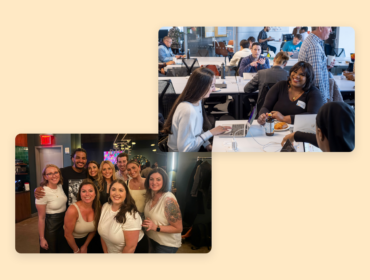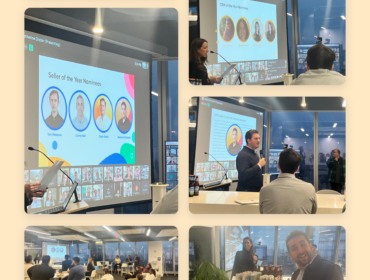Reframing work, life, and employee turnover with LiveIntent’s Abby Hamilton
According to the U.S. Bureau of Labor Statistics, the share of workers who voluntarily quit their jobs hit a record high of 3 percent in September 2021. And with many companies opening up their talent pool to all 50 states, employees have more opportunities and leverage than ever before. So how can organizations stay competitive during the Great Resignation and incentivize their employees to stick around?
The HR Superstars Podcast recently sat down with Abby Hamilton, chief people officer of LiveIntent, to discuss her successful approach that has dramatically decreased turnover at the media company.
With a heightened emphasis on our physical health and mental wellbeing and a taste of work-from-home life, employees from all walks of life are looking to get more out of their jobs than just a reasonable salary. Here are the top takeaways from Abby that you can apply to your organization, large or small.
Be proactive instead of reactive
Abby notes that the fundamental change for organizational leaders to harness is to be proactive instead of reactive. You need to put your people first because they’re your most valuable asset. Even for a company like LiveIntent, whose services revolve around automation, it’s still the people that set up the automation and keep the business going. Companies should ask themselves how they can grow their employees instead of how to keep them from quitting. Organizations can craft intentional cultures to attract and retain top talent with this mindset.
Lead with humanity
Of course, no matter how awesome an employee experience is, there will always be some turnover. You don’t necessarily want to be a company with no turnover; fresh ideas and talent are necessary for any business to evolve. She encourages her managers to celebrate those who have submitted their 2-week notice for a new opportunity, even if they’re losing a rockstar employee. The way you ‘exit’ an individual is just as important as the way you welcome them, as they are always going to remember how you made them feel. Do you want to elevate your employees’ perception of their tenure, or do you want them to leave with a sour taste in their mouths?
Have difficult conversations
Recognizing humanity and treating employees like real people is at the core of Abby’s philosophy on creating an intentional workplace culture. Employees want to feel seen, heard, and recognized — and this managerial shift must start from the top. At LiveIntent, Abby encourages leaders to have difficult conversations with their reports, including acknowledging struggles in performance. There’s a lot of humanity in telling people, “I recognize this is hard for you. I see that you’re struggling.” Although these interactions can be uncomfortable, it’s always better to be transparent.
In addition, LiveIntent offers several employee resource groups to discuss important issues. Employees are better equipped to perform at work with an outlet to vent to supportive colleagues about sensitive topics.
Address compensation
One of Abby’s secrets to success is talking about compensation every six months. Instead of offering everyone a standard 2-3% cost-of-living raise each year, LiveIntent awards more meaningful increases to a smaller pool of individuals twice a year. Plus, managers are instructed to tell their reports why they weren’t chosen for a raise and offer constructive feedback so they can reevaluate their status in four months. With a short timeline and a clear road map to follow, employees are more willing to commit to the company.
Set the tone from the top
Abby realizes that these conversations aren’t easy, and she doesn’t expect leaders to have all of the necessary tools on day one. LiveIntent has created a Lead with Intent training group where managers are empowered to coach each other through these situations and even role play. Abby insists that modeling from the top down is vital; by encouraging all managers to have open conversations and lead with humanity, they set the tone for the rest of the company to follow.
There has undoubtedly been a permanent, seismic shift in the way Americans value their careers, so if organizations want to stay competitive, they must embrace the change in our society. As for what Abby sees for the future of the American workplace? She believes that hybrid models will become more common, as people still value face-to-face interactions and collaboration. However, figuring out an intentional hybrid structure may prove more challenging than a fully remote environment. As long as companies vow to put their people first, they will be on the right track.
For even more insights from Abby, check out the entire episode of the HR Superstars podcast here.


